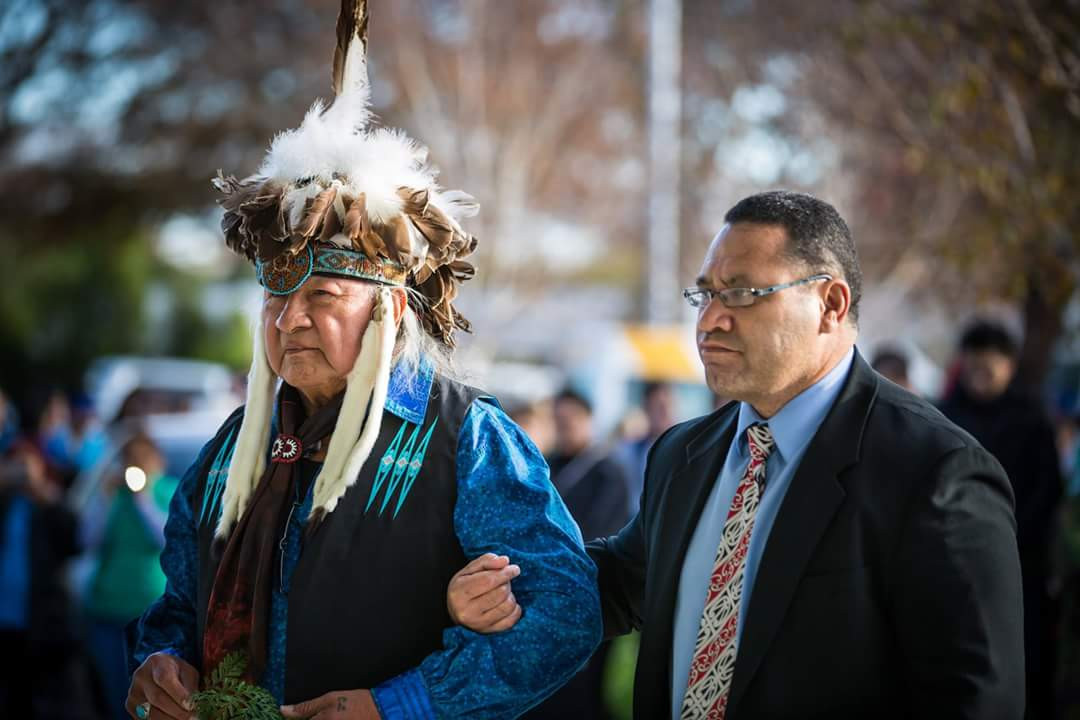Promoting strength to prevent suicides
International Indigenous conference to share successful prevention strategies
The World Indigenous Suicide Prevention Conference (WISPC) is coming to Winnipeg. Originally scheduled for August, in light of COVID-19, the conference will be postponed until a later date.
Carla Cochrane, one of the organizers for the conference in Winnipeg, says “the conference looks at (suicide prevention and life promotion) as connecting to protective factors, like Indigenous ways of knowing and healing, the language, connection to land, connection to culture, so it’s very strongly based at looking at ways of (preventing suicide and promoting life) in an Indigneous perspective.
Michael Naera (right) is a Maori leader who was involved in organizing the first World Indigenous Suicide Prevention Conference in New Zealand. The third annual conference, set to be held in Winnipeg, is postponed due to COVID-19. // Supplied photo
“Unless you’ve been published or had a study done, sometimes (successful practices are) not verified as being successful, because it hasn’t been measured in the western way,” she says. “But we know that the results happen, and we see them happen, so we’re providing a platform to share that knowledge with other Indigenous people.
“In Canada, it’s very important for us, because some of our communities are experiencing a high number of suicides, but just to bring it back home and to create that platform in our region is very important.”
The theme of this year’s conference is “Strength in Our Communities.” “It’s important that we build upon our strengths, because often people look at us from a deficit perspective, so we’re trying to show that we do have strength in our community,” Cochrane says.
WISPC has been happening every two years since 2016, with previous conferences in New Zealand and Australia. Michael Naera, who is Māori and was part of the original organizing team, says “the inaugural conference seeded out of concern from our elders that suicide in Māori communities was impacting our tribal lands, tribal ways of doing things, ways of looking after people in terms of their well-being.”
WISPC was the second part of the elders’ request. It was preceded by a national conference on Māori suicide prevention, Turamarama ki te ora, in 2015. After the national conference, Naera says “the elders said that the conversation needed to be taken to the rest of the world and (invited) our Indigenous brothers and sisters to New Zealand to talk about it at a global level.”
Naera says the transition from national to international was not the most smooth, as both conferences were mainly co-ordinated by two people in six months. “We were basically running on the wisdom and energy of our elders to get it up and running,” he says. “It’s been a phenomenal transition from humble beginnings to see it flourish.”
The first WISPC developed the Turamarama Declaration, which included 14 principles for Indigneous suicide prevention. The second conference, in Australia, focused on making Indigenous suicide prevention a policy priority.
Cochrane says the WISPC is not just a conference, but it also aims to have lasting positive impacts on the Indigneous communities where it is held.
“We’ve been trying to look at it from a perspective of how can we help our communities and how can we grow our capacity, how can we pull some of the talents from our communities together.”
Published in Volume 74, Number 23 of The Uniter (March 26, 2020)






